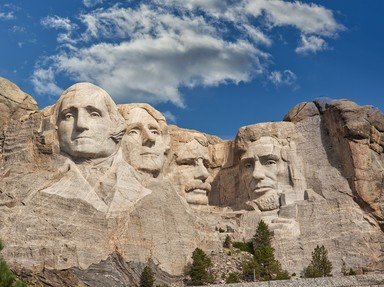Quiz Answer Key and Fun Facts
1. The first US President was George Washington. He was attributed with cutting down a cherry tree and proclaiming, "I can not tell a lie, I did it with my little hatchet." There is no corroborating evidence that he actually did and said this. What biographer started this anecdote that has lasted well over two centuries since Washington's death?
2. John Adams was the second President of the US. His Presidency was the shortest one for any President that completed his term. Why is that?
3. The third President of the US was Thomas Jefferson. Before becoming President in 1801, he served as Vice President under John Adams. What was unique about this relationship?
4. The fourth President of the US was James Madison. Madison served two terms and had two different Vice Presidents, George Clinton and Elbridge Gerry. What did Clinton and Gerry have in common?
5. James Monroe was US President number five. Monroe served in the Continental Army during the American Revolution. What was the highest rank he attained?
6. John Quincy Adams is the sixth President of the US. After serving as President, John Quincy Adams did something that no other President has ever done. What was it?
7. Andrew Jackson, the seventh President, was a war hero in the War of 1812 for the Battle of New Orleans. What EARLIER war was he also involved in?
8. The eighth President, Martin Van Buren, was the first President who was not of English descent (he was Dutch). What other first did Van Buren bring to the White House?
9. The ninth President, William Henry Harrison, was known as "Tippecanoe" because of a battle he fought there with Native Americans. What is Tippecanoe?
10. The tenth President of the US is John Tyler. When John Tyler died in 1862, his death was the only Presidential death not to be officially mourned in Washington. Why was this?
Source: Author
bigyaz
This quiz was reviewed by FunTrivia editor
stedman before going online.
Any errors found in FunTrivia content are routinely corrected through our feedback system.


